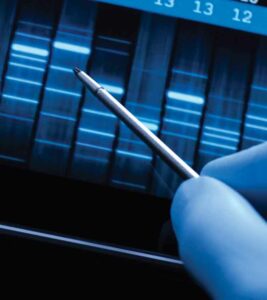New Craniofacial Genetic Disorder is Discovered
National Institutes of Health (NIH) scientists may have found a new genetic disorder that affects the brain and craniofacial skeleton.

National Institutes of Health (NIH) scientists may have found a new genetic disorder that affects the brain and craniofacial skeleton. The genetic disorder, named linkage-specific-deubiquitylation-deficiency-induced embryonic defects syndrome, referred to as LINKED, is characterized by developmental delays and malformations of the brain, heart, and facial features.
Researchers suggest this genetic disorder is caused by a mutated version of the OTUD5 gene, which interferes with key molecular steps in embryo development.
In experiments, OTUD5 gene mutations were linked to abnormalities in the development of neural crest cells. OTUD5 enzymes normally protect protein substrates, called chromatin remodelers, from being destroyed; however, investigators found when the gene mutation and mutated OTUD5 enzymes target chromatin remodelers, this class of proteins is destroyed. This can result in birth defects seen in patients with LINKED.
From Dimensions of Dental Hygiene. February 2021;19(2): 9.

